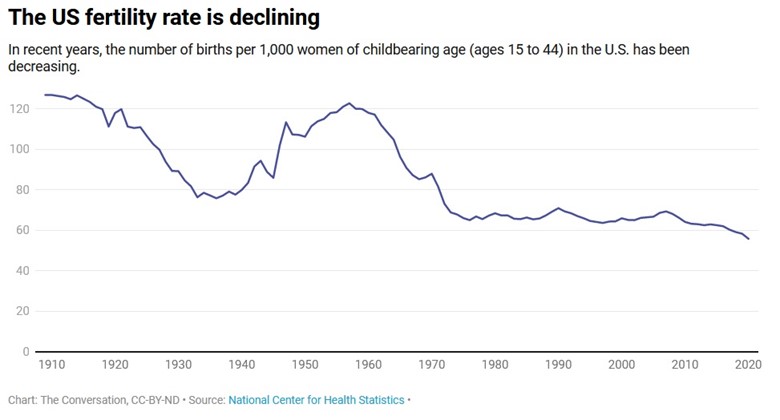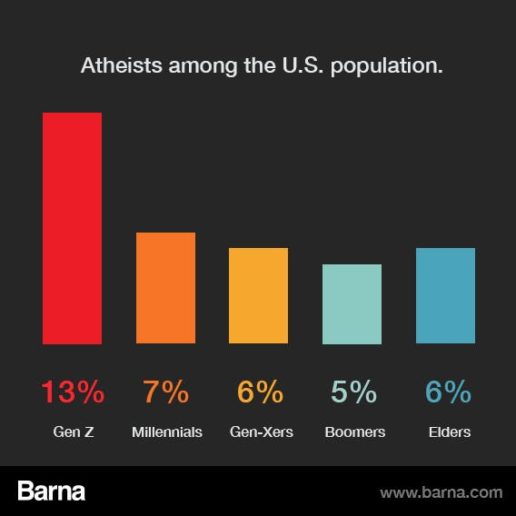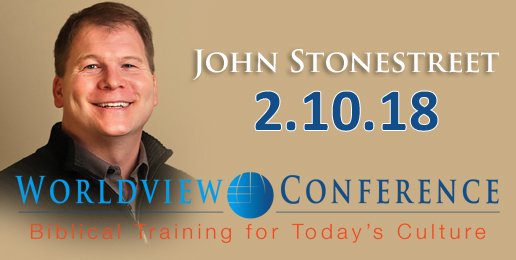Chuck Schumer Laments Lack of Workers, Calls for Amnesty for Illegal Immigrants
U.S. Senate Majority Leader Chuck Schumer (D-NY) has identified a true major crisis in America, and then suggested the most absurd solution. In a recent speech, Schumer said:
“Now more than ever we’re short of workers.”
This statement is true. Why is that?
First, we need to consider that Progressives have cultivated in Generation Z (youth born from approximately 1997-2012) an entitlement mentality. Gen Z is more likely than any previous generation to believe it is the responsibility of government to take care of them and meet their needs from cradle to grave. They have had access to many socialist-leaning policies that have de-incentivized them to work. Others have found ways to develop a lifestyle as a perpetual student, thus delaying getting an actual job. Many have found they make more money from the government by not working rather than working.
But there is another problem Schumer also correctly identified:
“We have a population that is not reproducing on its own with the same level that it used to.”
Schumer’s Solution? (Imagine All the People)
“The only way we’re going to have a great future in America is if we welcome and embrace immigrants—the DREAMers and all of them—because our ultimate goal is to help the DREAMers—but get a path to citizenship for all 11 million, or however many undocumented, there are here.”
Who Are the DREAMers?
Allow me to give a quick definition of “DREAMers.” “The DREAM Act” was a bill presented in 2001 by U.S. Senator Dick Durbin (D-IL). It never gained traction, even though it popped up in Congress several times (never being approved). The goal was to create a law that allowed anyone who arrived in America under the age of sixteen (and had been a resident for five years or more as well as a few other criteria), to obtain legal citizenship. The bill went nowhere until Barack Obama created an executive order, the Deferred Action for Childhood Arrivals act (DACA), making the concepts contained in The DREAM Act an informal policy in 2012. Many have argued that this executive order was unconstitutional.
The Crisis of Declining Birth
In a previous article for IFI in 2018, I wrote about the “New Demographic Winter,” coming economically to America. I discussed the history of the over-population myth and the perils that occur when a national fertility rate dips below 2.1 births per (hopefully married!) woman. According to the World Economic Forum in 2021: “The United States has seen a 50% decline in birth rates between 1950 and 2021, from 25 births per 1,000 people to 12.” More specifically, in May of 2021, America reached a record low of 55.8 births per 1,000 women of childbearing age.

Why Fewer Babies?
There are many reasons for this phenomenon.
First, having children is strongly discouraged in our culture as women are told they are “wasting their education” if they do have children. More women than ever are obtaining college degrees, and they are taught that having children means they are throwing away everything they invested their time and money in achieving.
Second, in 1950 women were having babies at 20 years of age. Today, many women are delaying marriage, and thus childbearing, until their early 30s (shortening their birthing years).
Third, contraceptives have been nearly universally utilized, for even married women, making it easier for them to avoid pregnancy.
Fourth, government-created inflation has created a scenario where many couples feel they simply can’t afford to have children (especially considering the massive college debt many bring into their marriage). Parents are told by the media that a family will spend on average $233,610 per child before they are 18 years old. This scares many off from the idea of having more than one or two children.
Fifth, Progressives have championed the growth of homosexual relationships that, of course, cannot produce children.
There are other factors, of course, but the one that is completely ignored by Schumer and the media is the most troubling.
Mass Genocide of the Unborn
Since Roe v. Wade in 1973, over 60,000,000 babies have been brutally murdered in their mothers’ wombs. Most of these babies, had they lived, would be working in today’s economy. Whose party has been the champion of this horrendous policy? Schumer’s democratic party of course. They created the very problem they now lament. However, rather than turning to the natural solution of encouraging men and women to marry and have their own children, Schumer has turned to a “solution” that is also fraught with problems that we will experience down the road.
Mass Amnesty
Schumer wants to make 11,000,000 illegal immigrants (or however many there are) naturalized citizens. America has always been a nation that welcomes immigrants. Both Republicans and Democrats want there to be legal pathways for people from other countries to come to America and create a new home.
Even the Trump administration suggested policies that would find a pathway of citizenship for those who were brought to America by their parents as children. No one is advocating for being unsympathetic to the plight of young children, or to those who were moved here through no choice of their own. The Democrats like to highlight undocumented children, because we are all sympathetic to their plight, but they are only a small fraction of the millions Schumer is suggesting we admit to citizenship.
If a child is deported along with his or her parents, the Democrats say we are uncaring. But let’s suppose we allow the DREAMer children to stay in the country, but deport their illegal parents. What kind of life is that for a child? What child wants to be separated from his or her parents? That’s way more cruel than deporting the entire family. Not to mention children left alone in this country will likely be raise by the government, costing tax-payers billions of dollars for their care. So Democrats say we should just let the whole family stay.
The problem is, mass amnesty for millions of illegal immigrants, coupled with no strategic border control, will only entice millions more to flood across the border illegally, using resources that should belong to American citizens.
A mass integration of millions of undocumented aliens does not allow for the careful analysis and background checks necessary to ensure that we are not white-listing millions of people with criminal records from other countries who have been hiding here within our borders. We know many have come to America smuggling drugs, contraband or even participating in human trafficking. These are not the kinds of citizens America needs.
At a time when our health care system and many government agencies are already overwhelmed, and when current housing is in short supply, documenting that many illegal immigrants will make the cost of living for current citizens skyrocket, and will make resources scarcer. This isn’t true with babies because they aren’t all born on the same day. For current citizens who have been trying to find work, this will make their search more difficult.
It is generally agreed that the primary goal of Democrats in promoting this kind of legislation is to buy votes from these illegals who will feel obligated to vote for the party who welcomed them in, even though they didn’t go through proper legal channels. This is part of the Democrats’ strategy, along with election redistricting, relaxing voting requirements and other such initiatives to wrest future national elections away from the Republican party for good.
Immigration Reform
In the end, we definitely need a much more efficient immigration process that allows for a faster legal documentation for law-abiding applicants to become a part of our American way of life. Our current bureaucracy is terribly inefficient (as is the process of parents seeking to adopt needy children through foreign and domestic adoption). We can achieve our goals of a safe and diverse population through a balanced, common-sense approach to both reasonable immigration and encouraging domestic birth.
The one thing we should not continue to do is to kill off our own offspring and try to compensate for it by throwing our borders open to any criminal who wants to invade our country without going through proper screening and vetting.


 The decline in a Christian-based worldview is illustrated in the graphic posted to the right.
The decline in a Christian-based worldview is illustrated in the graphic posted to the right.
